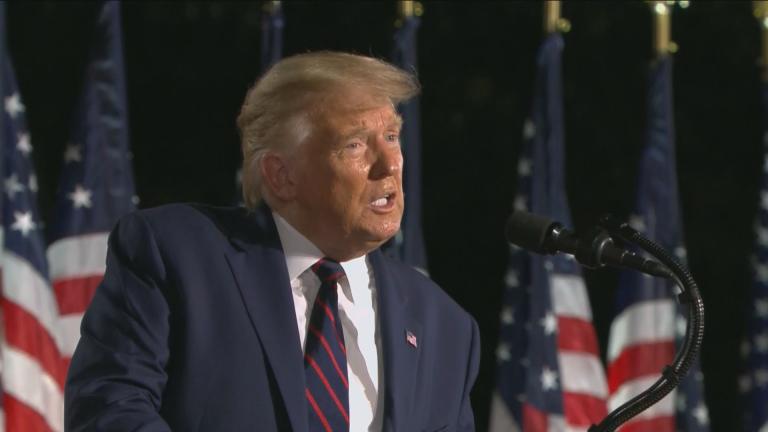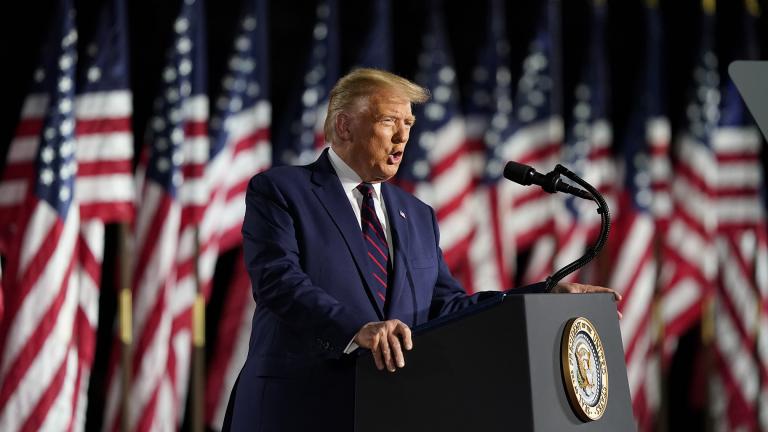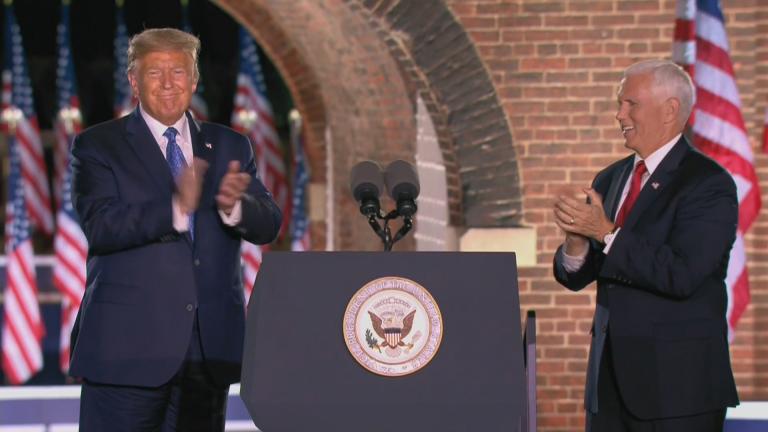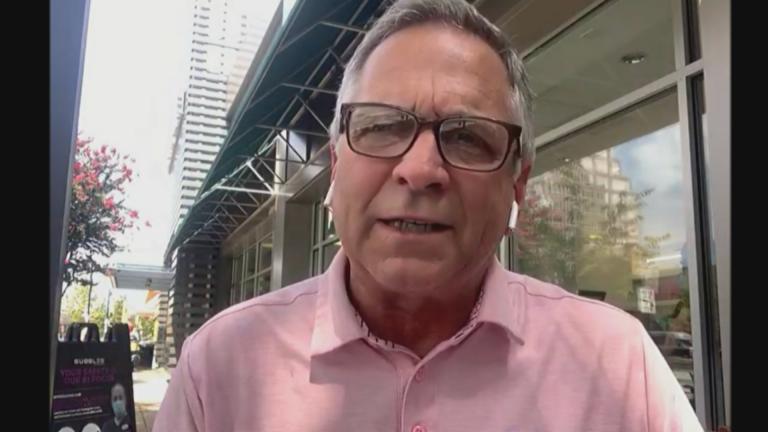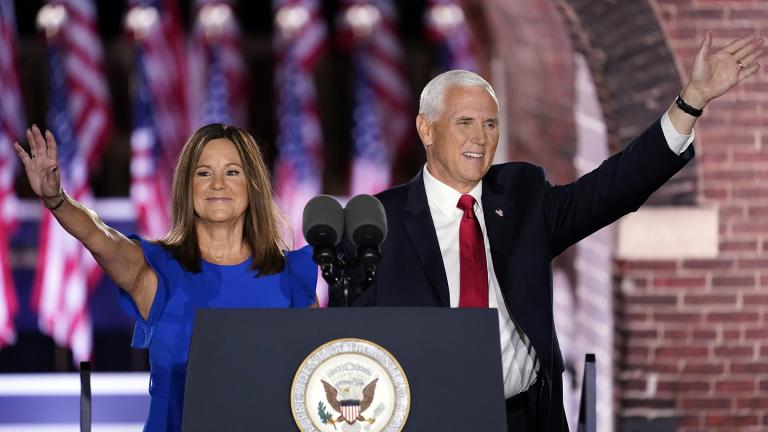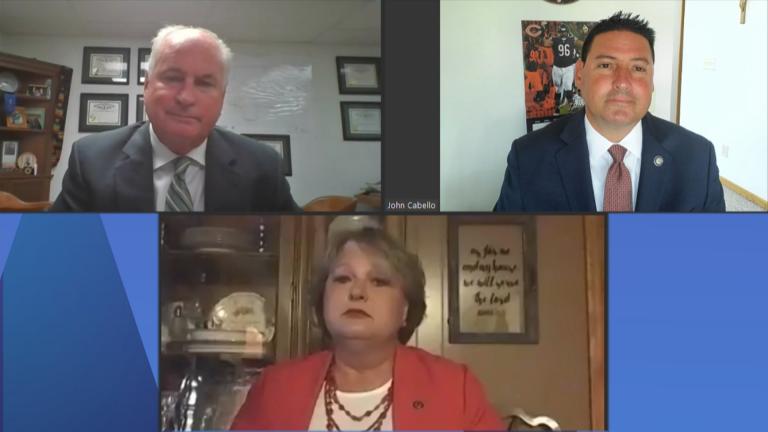Donald Trump and Joe Biden are on the ballot for president, but so too are their ideas, ideologies and proposals — and how those intersect with the hopes and fears of Americans.
Top of mind these days is the topic of race, from the disproportionate impact of the coronavirus on people of color, the killing of George Floyd and the demonstrations that followed, and now the shooting of Jacob Blake in Kenosha.
Last week at the Democratic National Convention, Democrats spoke about a commitment to racial equity and made a concerted effort to play up the party’s diverse makeup. On opening night of the Republican National Convention, the GOP likewise took the issue of race head-on.
“The Democratic Party does not want Black people to leave their mental plantation,” said Georgia state Rep. Vernon Jones, a Democrat who is Black, on Monday at the Republican National Convention.
Nikki Haley, former ambassador to the U.N., was the first woman and the first person of color elected as governor of South Carolina.
“In much of the Democratic Party, it’s now fashionable to say that America is racist. That is a lie. America is not a racist country,” Haley said, saying that for her, it’s personal.
A couple from St. Louis who brandished guns when a “mob” of mostly Black protesters came onto their private street, also spoke at the RNC.
Patricia McCloskey said Democrats are trying to abolish the suburbs “by ending single-family home zoning. This forced rezoning would bring crime, lawlessness and low-quality apartments into now thriving suburban neighborhoods,” she said, a phrase seen as a subtext for keeping Black and Brown people out of majority White areas.
Purdue University professor Nadia Brown said the GOP message is bifurcated, with one message stoking fear that without Trump America will dissolve into a dystopian society, and the other the more traditional points as advanced by Haley and U.S. Sen. Tim Scott, a Black Republican from South Carolina.
She said both messages had racial overtones.
For Haley and Scott, it was a message of: “I have excelled in the United States in spite of my racial background, and I invite others who are marginalized ethnic or racial groups to join me in the Republican Party because we are the party of future and hope and not victimization and trying to play the race card” she said, while the other, showcased by the McCloskeys, conjured that Trump will “protect you from scary Black and Brown people.”
The intent is not to drive up the Black vote for Trump, said another professor who studies race and politics, Northwestern University’s Jaime Dominguez.
“It is clear that the Republican Party’s platform this whole week is going to be about fear, fear and more fear. They want to just paint this dystopian picture that America has basically burning in flames,” he said.
While there are Black Republicans, Brown said that most Black voters will not support Trump even though tenants of conservatism ring true to many Black Americans because of the president and his party’s plays on “racism, racial inequalities, discrimination and prejudice” that is “too much for many Black voters to turn the other cheek and say ‘I can put up with these … injustices and vote for a party that might have some of my values in mind, but does not respect me my community or understand my experiences and want to understand them.’”
Loyola University professor of American Politics Twyla Blackmond Larnell said during their conventions, Republicans and Democrats alike have been playing to the moderate middle.
The RNC on Monday, she said, was specifically intended to reach the important voting block of white, suburban women who have the power to turn the tide for either Biden or Trump.
Speeches, such as when football player Herschel Walker vouched that he’s known Trump for 37 years and the president is not a racist, are intended to “try to assuage particularly white conservatives who don’t support racism that they’re not racist.” It was the RNC’s attempt to “make this particular group feel better about continuing to vote … for Donald Trump, despite the claims that him and his policies are racist.”
Among the Trump policies that the political scientists identified as racist are his policies on housing, the travel ban for those coming from the Middle East, immigration and not doing more to tackle the coronavirus considering its impact on people of color.
While it wasn’t a focus on Monday night, Dominguez said he expects the RNC will focus on attacking undocumented immigrants on one of its evenings.
Despite testimonials from individuals like Walker, Dominguez said in politics, actions speak louder than words.
“It’s about actions, and it’s been clear from the get go that that he (Trump) will do whatever he thinks is necessary, that he’d be happy to engage in racial tropes as a way to, you know, empathize, or perhaps, you know, devalue, the vote of individuals,” he said.
Follow Amanda Vinicky on Twitter: @AmandaVinicky

